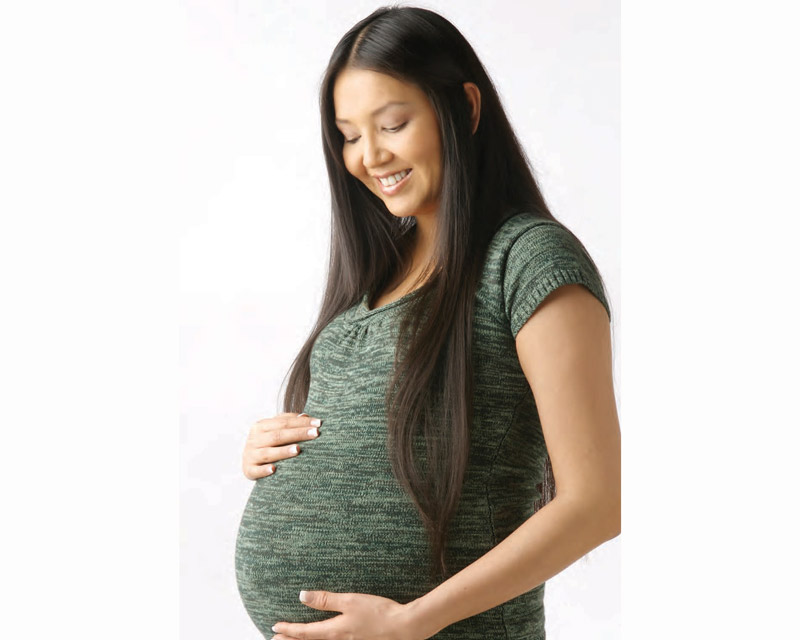A message from Drs. Unjali Malhotra and Nel Wieman, FNHA Office of the Chief Medical Officer; and Barb Webster, FNHA Clinical Nurse Specialist, Maternal Child Health

Pregnancy is a special time and each sacred journey of pregnancy is different. Because of the COVID-19 pandemic, your journey may include many changes in your emotions, feelings and spirit.
This is an understandably concerning time for women who are pregnant. Becoming a new mother has its own anxieties, and now these are amplified with COVID-19.
That said, there are several things you can do to prevent the spread of COVID-19 and to stay calm. You can do this, Mama! You are strong, and your nurturing has begun by taking every precaution to protect yourself and your family, including:
• Wash your hands frequently and thoroughly.
• Avoid people who are sick.
• Practice social distancing by staying six feet away from others. Sadly, baby showers need to be cancelled or postponed at this time, but if you have access to the Internet, you could try holding a virtual shower.
Take care of your personal wellness:
• Get more rest.
• Eat a healthy diet: you may need to rely on frozen fruit and vegetables, canned low-mercury-containing fish, taken in moderation.
• Do some stretching, yoga, deep breathing, meditation or prayer. For inspiration, you could watch/listen to free online videos such as:
o Guided Meditation with Deepak Chopra
o Guided Meditation with the Honest Guys
• Do some nesting: cleaning and organizing your home for your new addition is a great at-home activity!
Your pregnancy: some important health information
• COVID -19 is a new virus and information is limited.
• Due to the changes your body experiences during pregnancy, this may be a time when you are more likely get a virus and, if you do, the symptoms may be worse than if you weren't pregnant.
• Seek help early if you experience symptoms or have concerns
o Symptoms can range from mild to severe.
o Possible symptoms include fever, cough, respiratory symptoms, and shortness of breath.
o You can do a self-assessment online: https://www.811healthline.ca/covid-19-self-assessment.
o If you are pregnant and have symptoms, please call your prenatal care provider, self-isolate, and if needed, go to the nearest hospital. Please call your prenatal provider for non-COVID-19-related pregnancy concerns, such as cramping, bleeding, headaches.
o If you have any concerns or changes in your health that you think may be related to COVID-19, please call 811. (Not 911)
Your hospital visits: labour and assessments
You will likely be faced with some restrictions and precautions when you do go into labour or if you are attending a hospital for an assessment.
• It is likely that you will be allowed only one visitor who must NOT be showing signs of shortness of breath, fever, or coughing. Please have a back-up companion just in case.
• The health care providers will be wearing protective gowns, masks, face shields and gloves.
• Your baby may be monitored more closely to make sure it is healthy.
• Your baby will be tested for COVID-19 if you have tested positive for it.
• Unfortunately, ceremonies and celebrations will possibly have be limited to immediate and healthy family members who live with you and can take place only once you leave the hospital. Some things that you can do immediately following birth include playing recorded songs or delivering messages from grandparents/Elders.
• Skin-to-skin and breastfeeding are still supported at the hospital at this time.
This information and more can be found via these links:
• The Society of Obstetricians and Gynaecologists
• Centres for Disease Control and Prevention
• SafelyFed Canada
Immediately after you give birth:
• Care and feeding: Once you have your baby, if you are COVID-19 positive, your care team will discuss the correct use of a mask as well as procedures (isolation is not recommended at this time, but will possibly be discussed), and review handwashing specifically related to feeding.
• Breastfeeding: So far breastfeeding is being recommended, although information is limited on passing the virus from mom to baby through breastmilk. If a new mom is COVID-19 positive, it is not recommended that moms and babies be separated. However, it is important to speak to your health care provider about the risks and benefits of breastfeeding. It is also important to use precautions like avoiding coughing and sneezing near your newborn, washing your hands before holding/feeding, wearing a mask while feeding, and cleaning surfaces the baby will be placed on.
Despite the many worries, challenges and changes, for now, it is critical for you to do everything you can to stay calm and do things to benefit your emotional and spiritual wellness. You are a hero to your family and baby. Again: You can do this, Mama!

